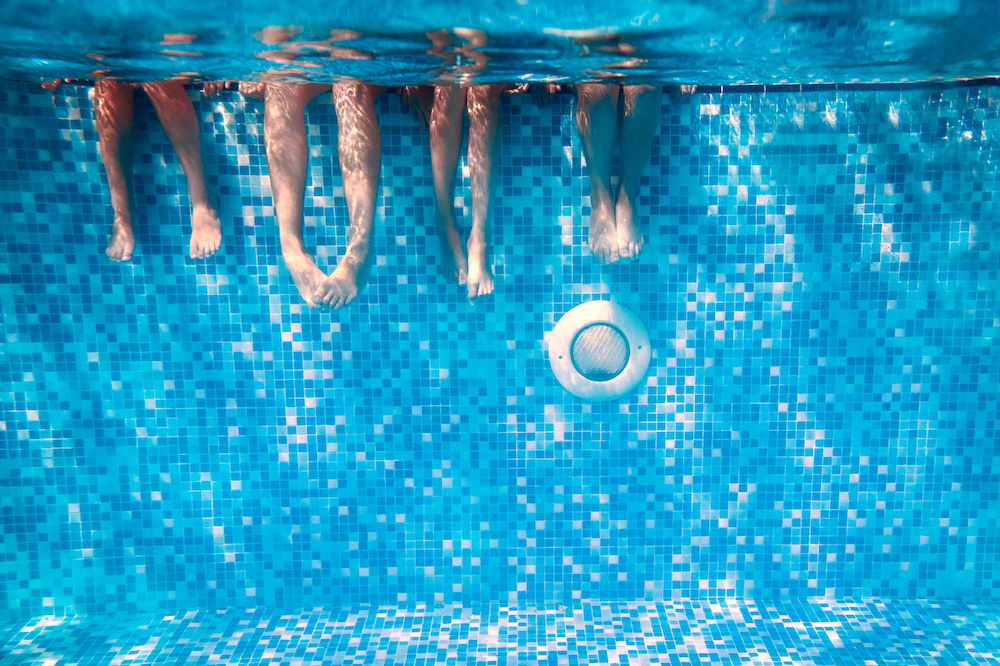What Happens if You Swim in a Shocked Pool?
Periodic shocking is a must for pool water maintenance and disinfection.
However, as the private swim coaches of Peace of Mind Swimming will tell you, swimming in a recently shocked pool will cause an immediate chemical reaction to your skin and eyes.
If you’re wondering what happens if you swim in a shocked pool, you must first understand what shocking a pool means.
By then, you’ll be able to figure out the effects of swimming after shocking pool and how long after shocking a pool can you swim.
What Does Shocking a Pool Mean?
Despite how it sounds, shocking a pool has nothing to do with uncovering an unexpected revelation or facilitating deliberate electrocution. If you are a pool owner, you probably already know this.
Pool shocking refers to the practice of adding chlorine or non-chlorine chemicals to the pool water to destroy contaminants such as algal blooms and bacteria.
Chlorine Measurements in Pools
Generally, there are three chlorine measurements present in pools and spas: chloramine levels, free chlorine levels, and total chlorine content.
Chloramines are also known as combined chlorine or chlorine particles that have formed into clumps over time.
Think of chlorine particles stuck in an unhealthy relationship, usually with nitrogen or ammonia, and you don’t want too much of that in your pool.
On the other hand, free chlorine comprises individual chlorine particles that freely interact with other chemicals, pathogens, and free-floating particles.
We need free chlorine in pools because it kills potentially harmful pathogens.
In many cases, the free chlorine latches onto and converts unwanted particles into gas form and releases them into the atmosphere.
All the chloramines and free chlorine particles in a swimming pool are collectively called total chlorine content.
Choosing Between Chlorine and Non-Chlorine Shocks
The type of pool shock depends on the current chemical level of already chlorinated pools. Most pool shock products come with high chlorine content, but you will find non-chlorine types of pool shock.
While pool water can be well-maintained with the regular addition of free chlorine, chloramines continuously accumulate over time.
One of the most common reasons for pool shocking is to deal with combined chlorine.
Sometimes, adding in too much chlorine can have a negative effect on the water quality in swimming pools.
The free chlorine should be 10 times the combined chlorine amount to induce a breaking point.
If your chlorine level is already high, you will need non-chlorine shocks to break down the combined chlorine into free, useful particles.
Is It Safe To Swim in a Pool That Was Just Shocked?
As a rule of thumb, it is only safe to swim in a pool that was just shocked when the chlorine levels settle between 1-4ppm. Furthermore, the pH levels should be in the 7.1-7.3 range.
If you go for private swimming lessons, you might notice your instructor changing the schedule to when chlorine levels are deemed safe.
Peace of Mind Swimming mandates the disinfection of swimming pools through chlorination.
However, our coaches will also ensure to use only recreational waters with safe water chemistry.
If it is a commercial swimming pool, the facility managers should give you a heads-up of when or when not to take a dip.
What Happens if You Get Into a Pool With Shock?
Shocking a pool requires raising the chlorine levels for effective sanitation and chloramine breakdown. While this amount of chlorine is essential for ridding a pool of potentially harmful substances, it can also be harmful to human health.

Here’s a rundown of why:
Skin Irritations
High chlorine concentration can irritate, dehydrate, and burn human skin cells. Moreover, if you already have sensitive skin, too much chlorine can compound the issue. In simpler, more tolerable cases, too much chlorine in the pool will cause dry skin or a chlorine rash.
Eye Problems
The human eye needs constant moisturization. Therefore, your eyes will feel irritated as it gets in contact with too much chlorine, which makes things dry and hard. Soon after you get out of the water, you will encounter severe eye itching and dryness.
Discoloration of Clothing
While this is not a health issue, it could be a consideration. If you are wearing expensive designer swimwear, you might want to hold back on dipping in a pool with excessive chlorine levels. Since chlorine is an active agent in many cleaning products, it may alter the bright colors of your clothing.
What Happens if You Swim in a Pool With Too Much Chlorine?
The previous section outlines the immediate effects of swimming in a pool that has just been recently shocked. This section shall discuss more drastic effects resulting from prolonged exposure to excessive amounts of chlorine.
Chlorine Poisoning
You can get chlorine poisoning when you swallow, inhale, or even just touch chlorine. Aside from having severe reactions with your skin and eyes, chlorine also actively reacts with the water inside your mucous membranes and digestive tract.
When this happens, hypochlorous and hydrochloric acid formation occurs, and these substances can be highly poisonous. While chlorine poisoning typically results from ingesting household cleaners, a recently shocked pool with high chlorine levels can also cause it.
Digestive Problems
Next to chlorine poisoning, you may also experience some digestive problems. These digestive problems include throat pain, stomach cramps, aches, and diarrhea. Additionally, you may also experience nausea and dizziness.
Breathing Issues
Since chlorine converts particles in the water into gas, chlorine vapor can also accumulate around a recently shocked pool. Chlorine vapor is also as dangerous as its liquid form. If you breathe it in, it reacts with the inner liners of the lungs and results in difficulty breathing.
People with breathing problems such as asthma or chronic bronchitis may have terrible experiences with chlorine vapor from a recently shocked pool. Your safest approach is to know how long after shock pool can you swim.
How Soon Can You Swim in a Pool After Adding Shock?
You will find varying answers to this question, including an average wait time of 2-4 hours and as long as 12-24 hours. The real answer to how long after shocking a pool can you swim varies depending on how much amount of shock you just added. If you need to use the pool immediately after shocking, you should account for a waiting time equivalent to an hour per pound of shock product.
If you hire a private swimming coach, they will have a keen sense of gauging when swimming pools have too much chlorine.
Peace of Mind Swimming trainers have been around many swimming pools, and they can easily identify the distinct odor of chlorinated pools.
What Happens if You Swim in a Shocked Pool?
At this point, you should understand what shocking a pool means and what happens if you swim in a shocked pool.
While chlorine will destroy almost all the germs, including those from feces, urine, saliva, and other substances, too much of this pool chemical is not safe.
Exposure to excessive amounts of pool shock can cause rashes, nose or throat pain, coughing, eye irritation, and other allergic reactions.
It is always better to plan and prepare a time frame so that you can have a safe swimming pool when you need it.
Understanding the shocking pool process and knowing how much shock product you used will give you a pretty good idea of how long to wait after shocking pool.



2 thoughts on “What Happens If You Swim In A Shocked Pool?”
What can I put on my skin if I got in the pool after it was shocked and also have sunburn. my husband told me to put vinegar on my skin
Hi Brittney, that is a great question and I hope you were able to find a suitable solution for now. I did some reading around and found the following response to be most helpful:
“If your skin feels uncomfortable after you’ve cleaned off, it is recommended using a moisturizer, or a topical steroid cream if your symptoms don’t improve.”